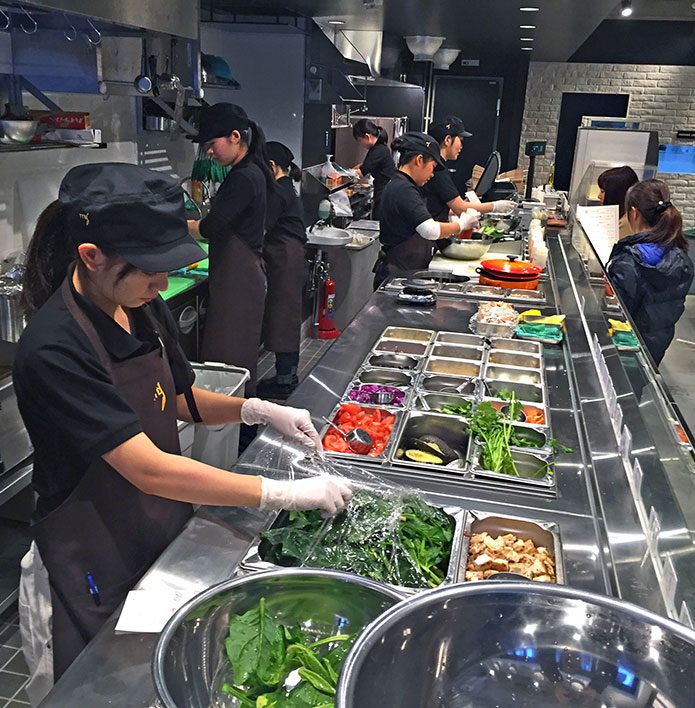
It has been observed, at various times in the past, that the ups and downs of the economy tend to have an impact on the outlays of what Japan’s consumers perceive to be healthy eating. Citing Ministry of Agriculture, Forestry and Fisheries data, the Nikkei Marketing Journal (24 August) noted that consumption of vegetables in 2015, calculated on a per person basis, was 90.8kg. This marked a 1.4% decline from 2014, and 5.7% from a decade ago.
Explanations for the decline in vegetable consumption ranged from there being a higher percentage of elderly people, who tend to eat less of everything, to vegetables being less popular among young people.
The so-called green-yellow vegetables, such as pumpkin, acorn squash and spinach, have shown a particular dip in popularity over the past two years. That is in contrast to tomatoes, the household consumption of which has risen 3.9% over the past decade. This may also suggest that vegetables which can be eaten without extra preparation are popular. Such a view is borne out by the declining popularity of root vegetables, especially burdock root, the consumption of which has fallen 16.4% over the past 10 years.
One bright spot is the growing popularity of salads. More restaurants are featuring menu selections in which a salad serves as the main dish. Osaka-based Fujio Food System Co., Ltd. will open the first outlet of Singapore’s Salad Stop restaurant franchise in Tokyo in October, and has set the target of 20 shops in operation by 2019. SFP Dining has opened My Salad Factory in a west Tokyo suburb. A large chopped salad is priced at ¥950, with toppings such as cheese bits and chicken morsels available for an additional ¥200–250.
Demand for vegetable juices has been recovering from a slump. Kagome, which commands about 50% of the domestic market, began identifying the functionality of juice products on their labels from February in line with recently adopted government guidelines, and this has boosted their healthy image. They are said to appeal to people aged 40 and over.